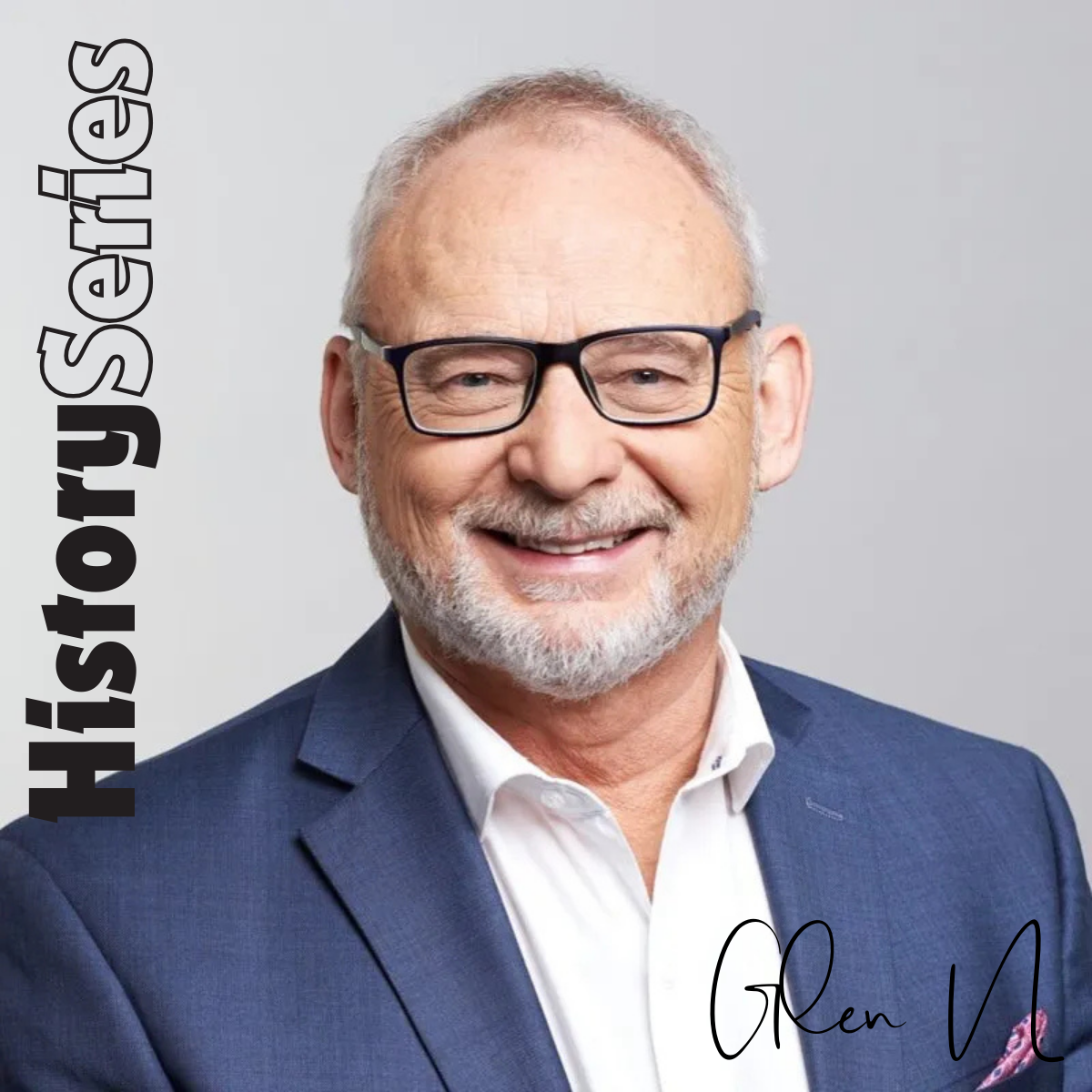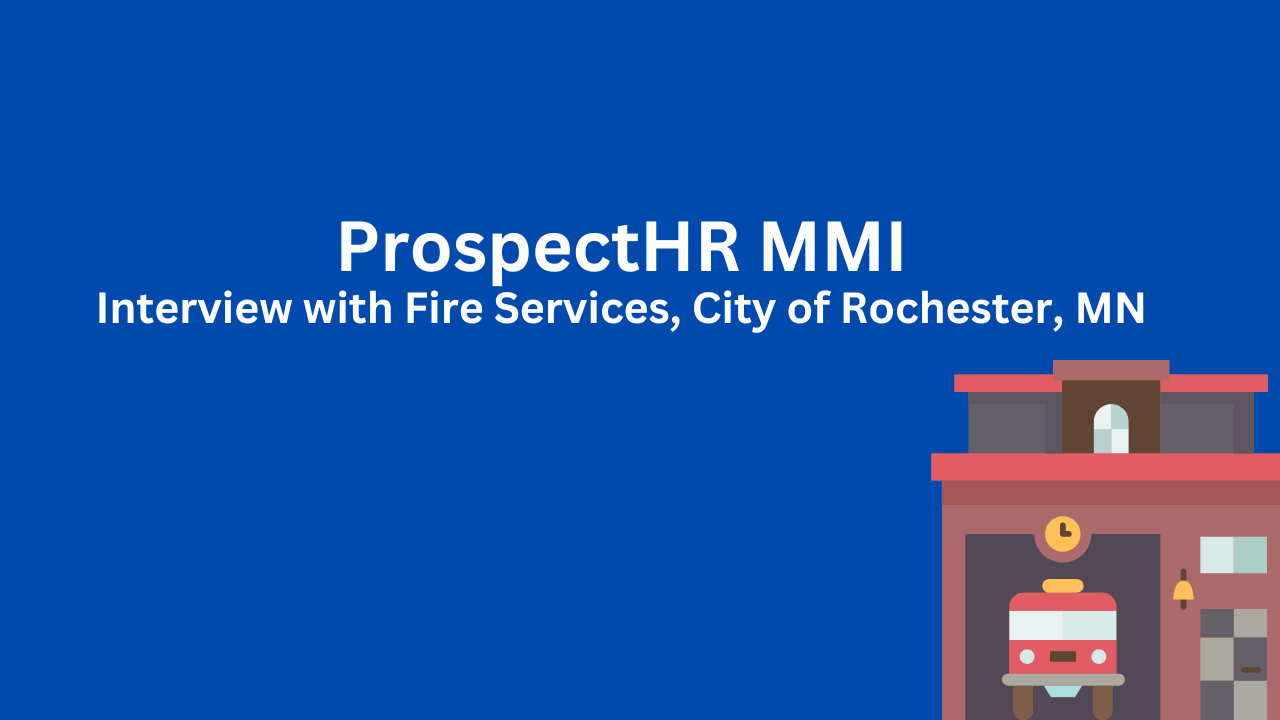Interview and select for critical soft skills with the proven MMI.
Recruiting and hiring the right person is one of the most difficult and important tasks an organization undertakes. Candidates who possess the critical soft skills can improve the performance and culture of your organization and profession. Those who don’t, will do the opposite.
It’s because the stakes are so high that managers and admissions committees from around the world trust ProspectHR MMI when it's time to add employees, select leaders or add a new cohort of students. Our proven, simple, turnkey multiple mini interview (MMI) system gives them everything they need to uncover essential soft skills and feel confident in their selections.
We've worked with 75+ organizations including:
Our Stengths
Why choose ProspectHR MMI
We're the proven MMI
Institutions around the world have proven that our MMI is an efficient and effective way to test for critical soft skills.
We're turnkey
With ProspectHR MMI everything is pre-built for you including 600+ pre-written interview scenarios created by experts.
We're here for you
Our highly skilled, Canadian support team makes it seamless and straightforward to plan and implement MMI or vMMI.
We're game changers
Our MMI helps you change the world for the better, one recruit,
one profession and one
leader at a time.
“The seven stations we picked from the ProspectHR MMI stations did an excellent job separating the top performers versus the low performers. Their CCO, Jack Rosenfeld, one of the creators of the MMI, even worked closely with our program to individualize and create a custom station that fit our needs. We are thankful for this company for easing our burden during admissions season and helping us select incredibly qualified applicants!”
Academic Director/Assistant Professor
Sydney N. Kutter, Pharm.D., BCPS
Master of Science in Physician Assistant Program
Mayborn College of Health Sciences
University of Mary Hardin-Baylor
Trends & Insights

The history of the ProspectHR MMI. A Board member’s insight. When speaking of the history of our Multiple Mini Interview (MMI), personal insights and reflections are an important part of the story. In this article we spoke to Paul Grunthal, MSc and ProspectHR MMI Board Advisor. Paul, when and how did you first hear of an MMI? I was introduced to the MMI in the fall of 2006 when I moved to the tech transfer office from the Faculty of Science at McMaster University. The MMI was one of the first McMaster technologies I helped bring to market and I have been working with the team ever since. Why was the MMI important to pursue from a large scale POV and why was it important to you personally? I gravitated towards the MMI because I saw it had great potential. Before being introduced to the interview system, I was a career coach to Science students in co-operative education at McMaster. We taught courses on how to be interviewed and ran mock interviews. It was this experience that helped me appreciate how the MMI could simultaneously to: 1. Minimize interviewer bias 2. Help select better candidates 3. Give applicants the ability to overcome or recover from the pressure of an in-person interview. To me it seemed like a 'win-win-win' scenario. When did the idea of forming a company emerge? How did ProspectHR MMI come about? Initially the MMI was less than 100 scenarios on a CD and we had two clients. When we compiled a more formal product package and the developers became more active in research papers and conference appearances we were barely able to keep up with the number of licenses we needed to draft. It was when we hit about 12 or 13 customers that we thought this could really be something bigger. In 2008, with two of the inventors present, APT INC was launched as the exclusive global retailer of McMaster's Multiple Mini-interview. Was there a time when you thought, "this is going to work!". Please share that experience. When APT launched the online portal version of the MMI in 2011 I knew this business was truly scalable and that we could reach customers around the world. Previously, I was manually sending out updates by mail. With more and more clients coming onboard this was becoming a very onerous task that needed to be streamlined and automated. From those early days, we now have clients on five continents that can access the latest MMI content 24/7. What was your motivation for staying involved with the MMI and ultimately, ProspectHR MMI? I believed in the concept and I felt attached to the MMI. It was a winner that was going to make a difference in people's lives and careers. I had been an interviewer, a station writer, a content creator, and commercial advocate. The more I worked with the MMI the more I appreciated its elegant solution to candidate selection and to date I've seen nothing else that would change my mind.

Each month we get in touch with one of our Board members to discuss their personal history with the MMI and ProspectHR. This month we had a conversation with Glen Norton, CPA, CMA, MBA and Chairman of the Board. Glen, when and how did you first hear of an MMI? What year was that and where were you working? In 2007, after many years in the commercial banking sector, I launched my own management consulting business. During this time, I was approached by the Director of the McMaster Industry Liaison Office and hired to conduct a commercialization feasibility study on a method developed by the Medical School at McMaster University. This method, known as the Multiple Mini Interview (MMI) was designed to assess candidates for admission into the university’s prestigious medical program. My research, which included focus groups with universities, government agencies, and private corporations, confirmed that the MMI was both unique and highly marketable. As a result, I was invited to co-found a company to bring the technology to the global market. What did you think about the idea of an MMI when it was first explained to you? I was intrigued with the idea, but was skeptical because it was not like anything I had ever encountered in my own career. Why was the MMI important to pursue from a large scale POV and why was it important to you personally? One of the key reasons I believed it was important to bring this new technology to the world was its potential to improve recruitment decisions, resulting in stronger graduates and more effective hiring in private companies. As a former banker, I also saw the significant cost-saving benefits it could offer to clients, which further reinforced its value. What were you hoping to change when you were part of creating the MMI? I was hoping that the MMI was a way to provide some objective basis for recruitment/hiring which is usually a very subjective decision. And it was. What problem did the creation and growth of the MMI solve? The MMI helps reduce the number of bad hires (and poor admissions). This is good for the organizations AND the individual. When did the idea of forming a company emerge? How did ProspectHR MMI come about? As soon as I submitted my favorable commercialization report I was asked to assist in the formation of the company and to take an ownership stake, along with two of the co-creators and the McMaster Industry Liaison Office. Was there a time when you thought, "this is going to work!"... Please share that experience. Due to the fairly exhaustive commercialization study, I was convinced it would work before we even had our first customer. It helped of course that several other Canadian medical schools were already doing their own research and were duplicating the McMaster University results. W hat are some of the most exciting moments in the development/growth of the MMI for you? One of the most exciting moments was when we were asked to set up a pilot program for the government of one of the former Soviet Union countries. We had to send several people overseas to demonstrate and have numerous stations translated into Russian. That country ultimately decided not to go with our solution but it was an exciting time and opened our eyes to the potential of the international market. What was your motivation for staying involved with the MMI and ultimately, ProspectHR MMI? I have remained actively involved with the company as both Board Chair and CFO, driven by my passion for entrepreneurship and my continued belief in our product. I enjoy contributing new ideas, especially for stations tailored to the government and corporate sectors. Our database has now expanded to include over 700 interview stations. Were there any obstacles in the development and growth of the MMI that really stand out to you? Obstacles that needed to be hurdled to move forward? The biggest obstacle to growth has been convincing university admission offices and corporate HR departments that the way they have recruited or assessed candidates in the past is not the best way to identify and test for essential soft skills.






